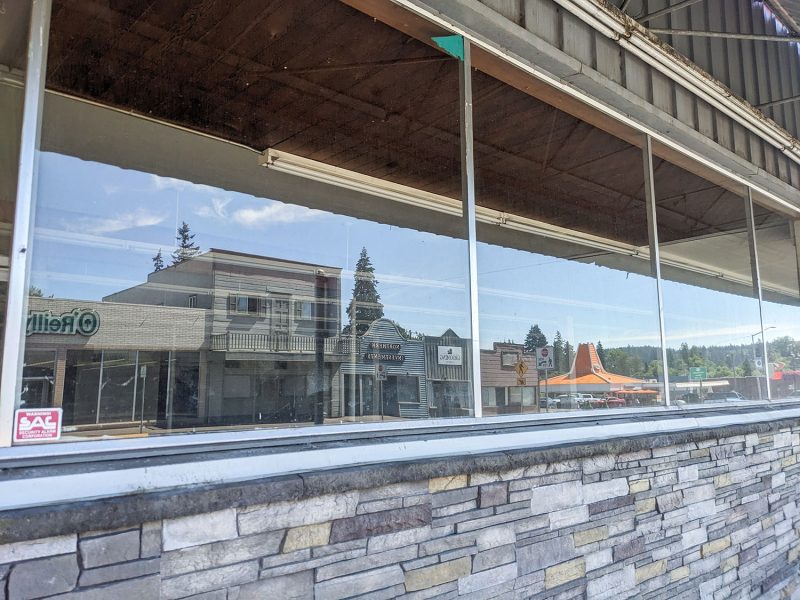City Council held a work session on Tuesday, June 18, to wrestle with the topic of downtown standards and empty buildings, a topic that, Mayor Susan Coleman said, has been under discussion for many years.
“I think it’s good to pick it up and work on finalizing these ideas,” she said.
Council and city staff discussed fire safety concerns, empty buildings being used as tax shelters, a demolition ordinance, business registration, and added incentives and funding for improvements.
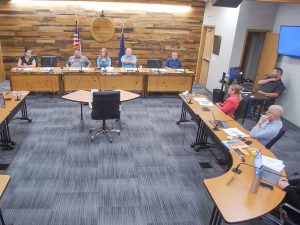 Prior to any discussion, the council was directed to walk around the room and place markers on posters indicating their level of agreement or interest for different ideas on incentives and penalties, development standards and general appearance, and maintenance requirements.
Prior to any discussion, the council was directed to walk around the room and place markers on posters indicating their level of agreement or interest for different ideas on incentives and penalties, development standards and general appearance, and maintenance requirements.
“For me, I think the biggest concern is empty storefronts not being kept up and then just being used for tax write-off purposes that just brings a draw-down to our community and our downtown core,” Mayor Coleman said. “I think these matters, if done in a wise way, would help mitigate those.”
Councilor Greg Mahler noted the lack of “teeth” to enforce any directive for building maintenance.
“We can talk all day long about how to make downtown look beautiful, but if we can’t get them to do something to these empty buildings, it’s gonna be a distraction if anything we do nice,” he said.
According to Mayor Coleman, Community and Economic Development Director Blair Larsen drafted an ordinance (not yet adopted by the city) for possible use as an option regarding “demolition by neglect.”
City Manager Kelcey Young noted there was little indication on the posters that the council was interested in fining building owners for vacancies, to which Councilor Mahler said there might be some concern that potential fines could deter businesses from coming to town.
Mayor Coleman said the city has offered incentives to building owners for a long time that produced little to no response, but the city receives backlash when fines are suggested.
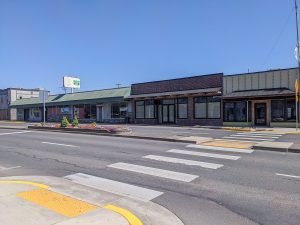
“We might create an environment where people are concerned about coming in (if they risk getting fined), but we’ve already created that environment by allowing buildings to sit empty and then it looks like our business community is not thriving,” she said.
During the work session, brief discussions ensued about urban renewal districts, enterprise zones, business licenses (free or low-fee) and buried wires. Of those, the business license discussion took the most time as councilors talked about the benefits for business owners as well as the city and fire district to have access to building owner and residence information.
For example, the city could provide resource information (grants) to incoming businesses, and emergency responders could quickly access contact information in the event of an emergency such as fire.
Sanchez expressed opposition to any extra regulations that could deter businesses.
“I’m deeply troubled that we’re considering barriers to businesses and raising fees in this state of economy and inflation and interest rate,” she said. “We’re already struggling retaining businesses and bringing in businesses, so I’m more of the incentive type of person instead of a regulation type of person.”
Larsen asked the council to define what they believe should be the role of the city in downtown. Councilor Josh Thorstad said he would not approve of the city fining his business, but Councilor Mahler indicated that if the city told him, as a business owner, that he needed to “clean up his act,” then he would try to work with the city to improve his business.
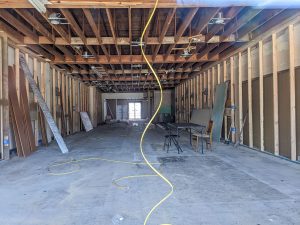
“I don’t think our role as the city is to be police,” Councilor Mahler said. “But on the flip side, we gotta protect the city from hazards.”
“I think the city’s role in downtown is to facilitate through infrastructure and safety an environment that allows economy to thrive, and I think right now we know that’s not what it looks like in downtown,” Mayor Coleman said.
She agreed with councilors Mahler and Dave Trask that fire safety violations are a part of the concern.
Young shared that other cities utilize different means to achieve a functioning downtown core, including additional inspections, downtown standards, demolition by neglect and fines for vacant buildings.
As discussions continued, Mayor Coleman suggested the council decide to either create guidance for businesses or not so that the issue could finally be put to bed.
Councilor Angelita Sanchez said if the city imposes any force of action for empty buildings, the city should first do something with its own empty buildings (presumably referring to the former city hall).
“The second issue is I don’t see a role for government to tell private business or private owners what they can and can’t do with their property,” she said.
Mayor Coleman responded by saying the government often does tell people what they can and can’t do with their property, and the former city hall building is updated and in use by the fire district.
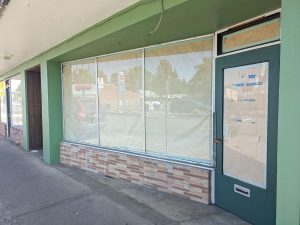
Young said the city is doing what it can to bring in more businesses, but there are no mechanisms in place to change the problem of habitually empty storefront buildings. It’s up to City Council to decide the fate of those who refuse to fill their buildings, and she listed out what appeared to her to be their preferred options: an ordinance for demolition by neglect, additional incentives, business registration or further discussions about habitually vacant buildings.
“If you all are open to talking about it, I do think it has an opportunity to make a really positive difference in the community if done the right way,” Young said.
Councilor Mahler responded that if the building owners could be persuaded to use their buildings, perhaps through added incentives, then he believes there would be a 360-degree shift in the downtown core. Mayor Coleman added that there have been some positive changes downtown recently and “multiple” new businesses are expected to be opening up soon.
“We’re making progress,” she said. “We know that there’s some property owners who’ve dug in their heels, but the rest of them are really coming along.”
Councilor Thorstad said he’d like the public to engage in a survey so the city can see their response about the vacant buildings, and Councilor Sanchez expressed interest in offering more funding for interior improvements for businesses.





